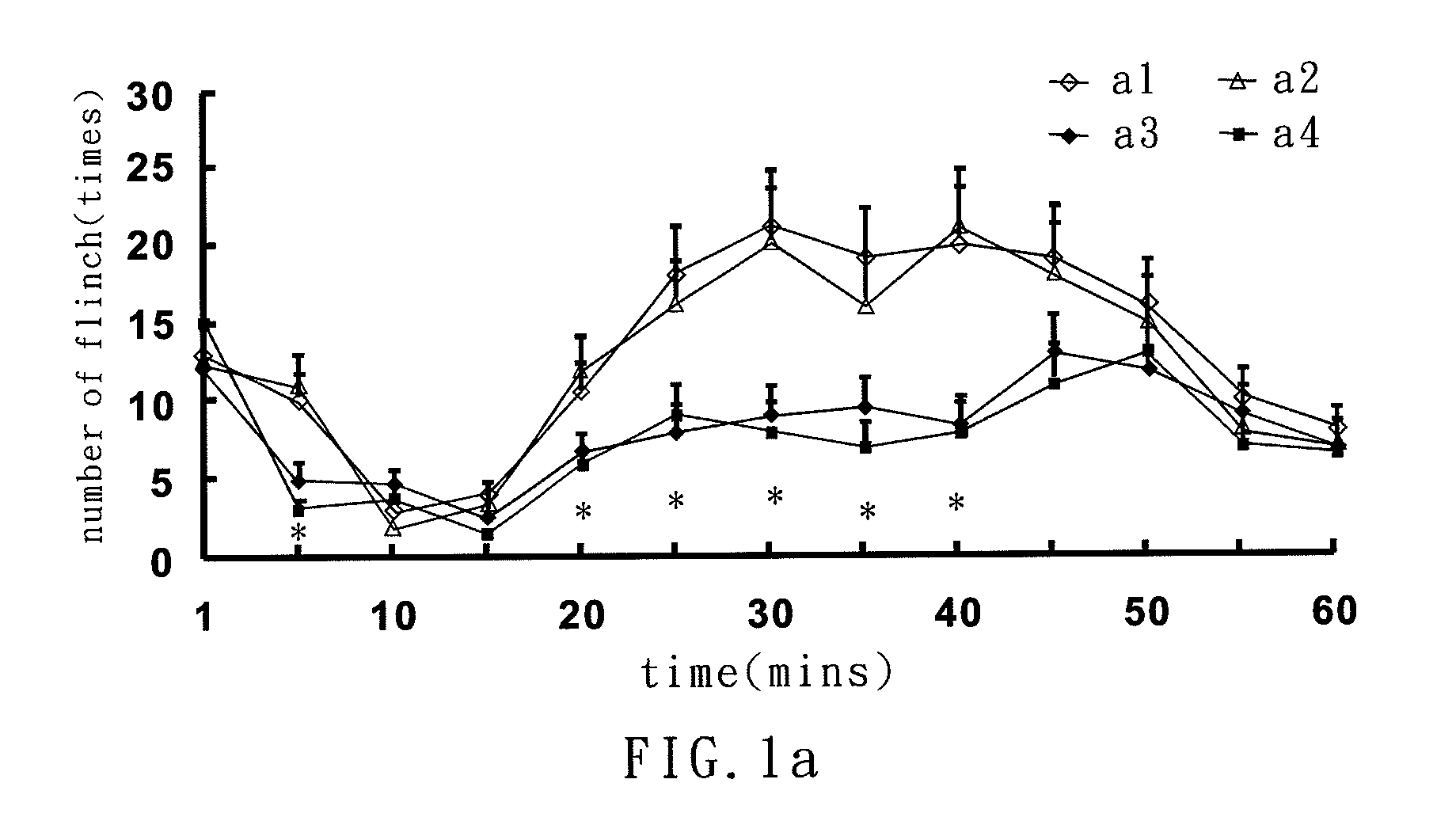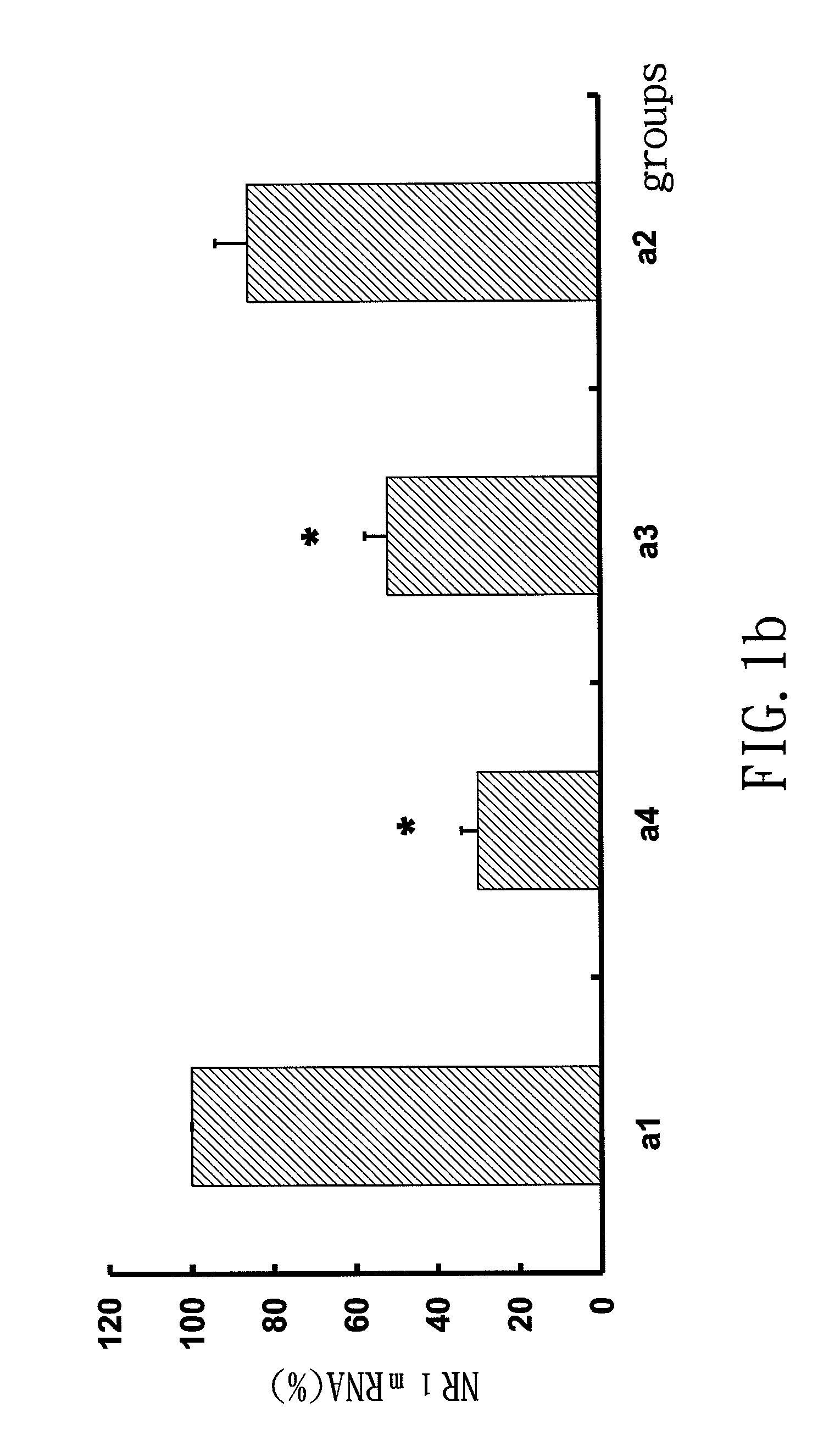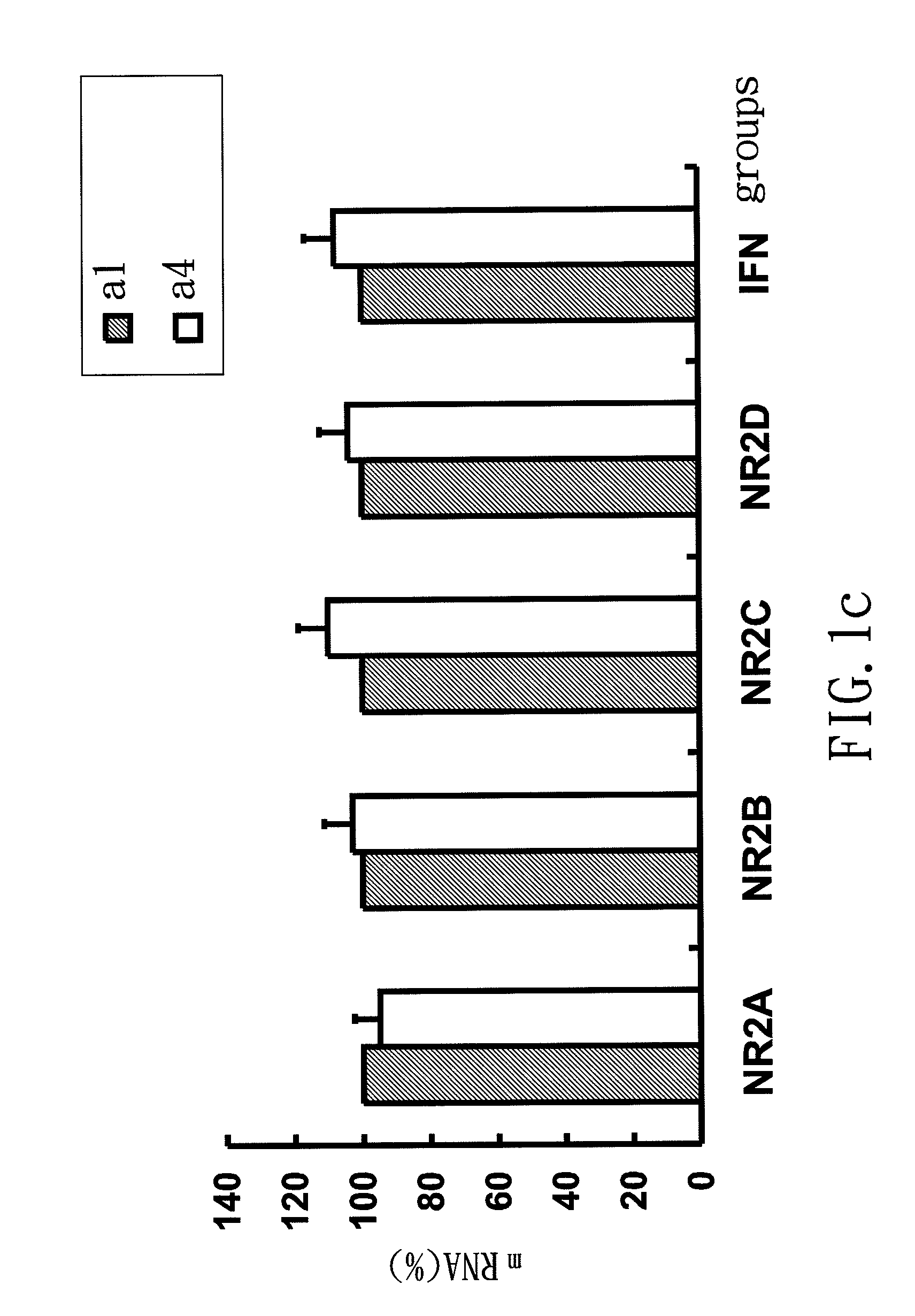Small interfering RNA for gene knockdown of the subcutaneous N-methyl-D-aspartate receptor NR1 subunit, and it's application on pharmaceutics
a subunit of the subcutaneous n-methyl-d-aspartate receptor and small interfering rna technology, applied in the direction of anti-inflammatory agents, biocide, drug compositions, etc., can solve the problems of bringing miserable pain to most clinical burn patients undergoing therapeutic treatment, complex and intolerable pain induced by skin injuries, cancer and non-cancer chronic pain may persist for ages, etc., to relieve skin inflammatory pain and avoid any side effects of the central nervous
- Summary
- Abstract
- Description
- Claims
- Application Information
AI Technical Summary
Benefits of technology
Problems solved by technology
Method used
Image
Examples
Embodiment Construction
[0035]The present invention is tended to provide a small interfering RNA (siRNA) for gene knockdown of NMDA receptor NR1 subunit, which comprises homologous RNA sequence of NMDA receptor NR1 subunit, for specific targeting and inhibiting the normal effects of NMDA receptor NR1 subunit. Furthermore, with the utilization of the siRNA on subcutaneous tissues in creatures develops a temporary inactivation of NMDA receptor NR1 subunit in hypoderm for interfering with the normal genetic expression and functions of NMDA receptor NR1 subunit.
[0036]The principle of the present invention is based on specifically gene knockdown by RNA interference which referring to a phenomenon of post-transcriptional gene silencing only found in high eukaryotes, like drosophila and nematode. RNA interference is an evolutionarily gene silencing mechanism mediated by small double-stranded RNA (also called small interfering RNA or siRNA).
[0037]Since siRNA first discovery in 1990, it has been well developed as a...
PUM
| Property | Measurement | Unit |
|---|---|---|
| time | aaaaa | aaaaa |
| length | aaaaa | aaaaa |
| length | aaaaa | aaaaa |
Abstract
Description
Claims
Application Information
 Login to View More
Login to View More - R&D
- Intellectual Property
- Life Sciences
- Materials
- Tech Scout
- Unparalleled Data Quality
- Higher Quality Content
- 60% Fewer Hallucinations
Browse by: Latest US Patents, China's latest patents, Technical Efficacy Thesaurus, Application Domain, Technology Topic, Popular Technical Reports.
© 2025 PatSnap. All rights reserved.Legal|Privacy policy|Modern Slavery Act Transparency Statement|Sitemap|About US| Contact US: help@patsnap.com



